

Fiji's coup leaders, from left: Sitiveni Rabuka, George Speight, and Frank Bainimarama.
Photo/Supplied
Fiji's coup legacy: A 38-year struggle for justice and accountability
A veteran journalist raises critical questions about liability and the perceptions of younger generations who have little connection to these pivotal events.


Losing her vision at 29, woman found a crisis Pacific communities can’t afford to ignore
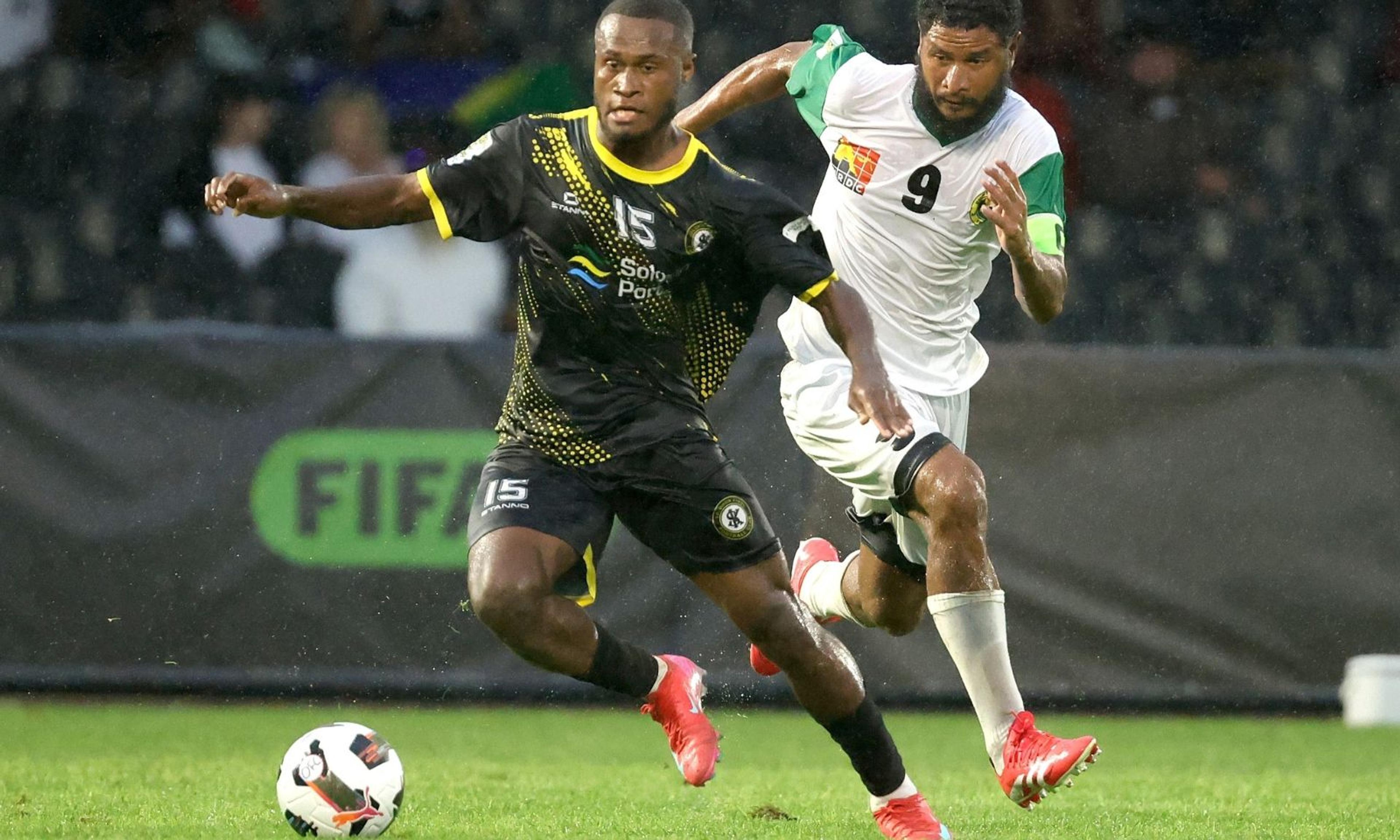
Kings bring OFC Pro League home as storms hit round three fixtures

Fears that new police powers will push Pacific youth further into harm

Pacific calls for action on climate change and illegal fishing at major ocean naval forum

Losing her vision at 29, woman found a crisis Pacific communities can’t afford to ignore

Kings bring OFC Pro League home as storms hit round three fixtures

Fears that new police powers will push Pacific youth further into harm
This year marks 38 years since Fiji’s first military coup on 14 May 1987, an event that has permanently altered the country’s path.
The coups d'état that took place in 1987 are key moments in Fiji's history and are remembered on two dates: the first on 14 May and the second on 25 September.
There was also a violent coup on 19 May 2000, and another takeover on 5 December 2006.
Current Prime Minister Sitiveni Rabuka, a former Lieutenant-Colonel, led the first coup in 1987.
His actions not only removed the elected government but also ended Fiji's status as a monarchy, resulting in the country becoming a republic.
Rabuka's aim in those coups was to ensure that the indigenous Fijian people held power in the government.
In 2000, another coup led by George Speight overthrew the nation's first Indo-Fijian Prime Minister, Mahendra Chaudhry.
Speight was later convicted of treason and sentenced to life in prison, but he received a presidential pardon in September 2024.
Following the 2000 coup, there was violence, including the deaths of at least nine people and dozens injured.
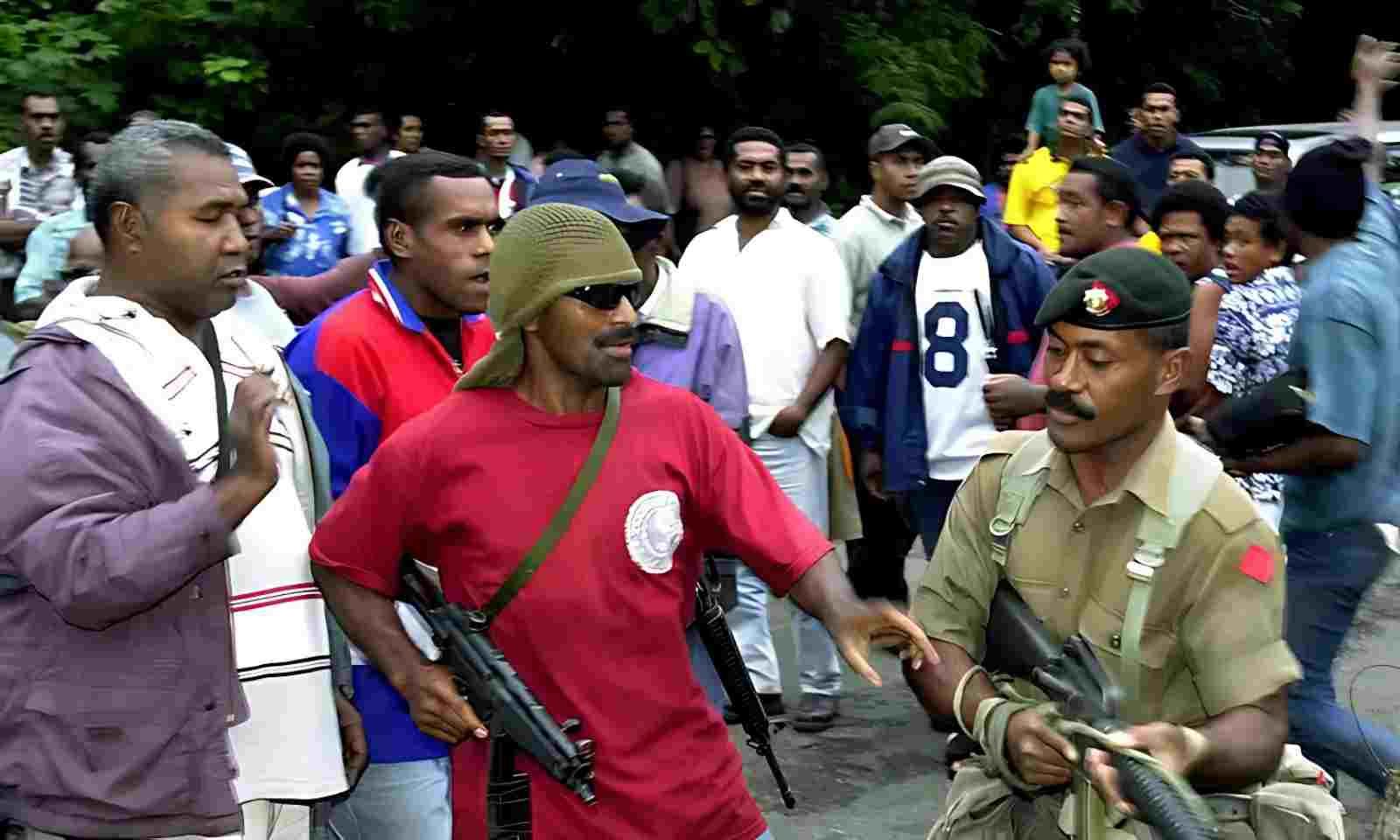
The Fiji military's involvement in coups has led to significant political instability, even after democratic elections. Photo/michaelf27.substack.com
A mutiny at the military headquarters in the capital, Suva, in November that same year led to the deaths of eight soldiers, with reports suggesting that some rebels were brutally killed after being captured.
It's important to remember that the 2000 coup by Speight, who stormed the Parliament and took Prime Minister Chaudhry and 50 other MPs hostage. They were held for 56 days, from 19 May to 13 July 2000, while Speight and his supporters demanded the abrogation of the country's constitution and the appointment of a new government.
The most recent coup happened on 5 December 2006, when Commodore Frank Bainimarama took control of the military and ousted the elected government of the late Laisenia Qarase.
Bainimarama became prime minister in 2007 and remained in power until he lost the election in 2022 to Rabuka.
Watch Mahendra Chaudhry's full interview following the release of George Speight from prison.
In May 2024, Bainimarama was jailed for abuse of power and interfering in an investigation into financial mismanagement at the University of the South Pacific. On 8 November, the Fiji Corrections Service announced his early release from prison.
Michael Field, a veteran New Zealand journalist, recently shared his thoughts about the coup anniversaries in Fiji, stating that while Speight served his time, Rabuka remains free, highlighting the uneven nature of justice.
"Speight did time, Rabuka goes rree, and we’re still waiting for a real reckoning. Fiji’s Rabuka throws himself on the couch, pleads his guilt and knows nothing will follow. Confession without penance. No facts, no truth, no insight, just more self-flagellation."
In an article titled Coup Replay: Fiji’s Generational Amnesia Hits Another Anniversary, Field notes that many young people in Fiji today were not alive during these historical events.
He adds that only those aged 30 and older might remember the 2000 coup, while younger generations may not fully grasp its significance.
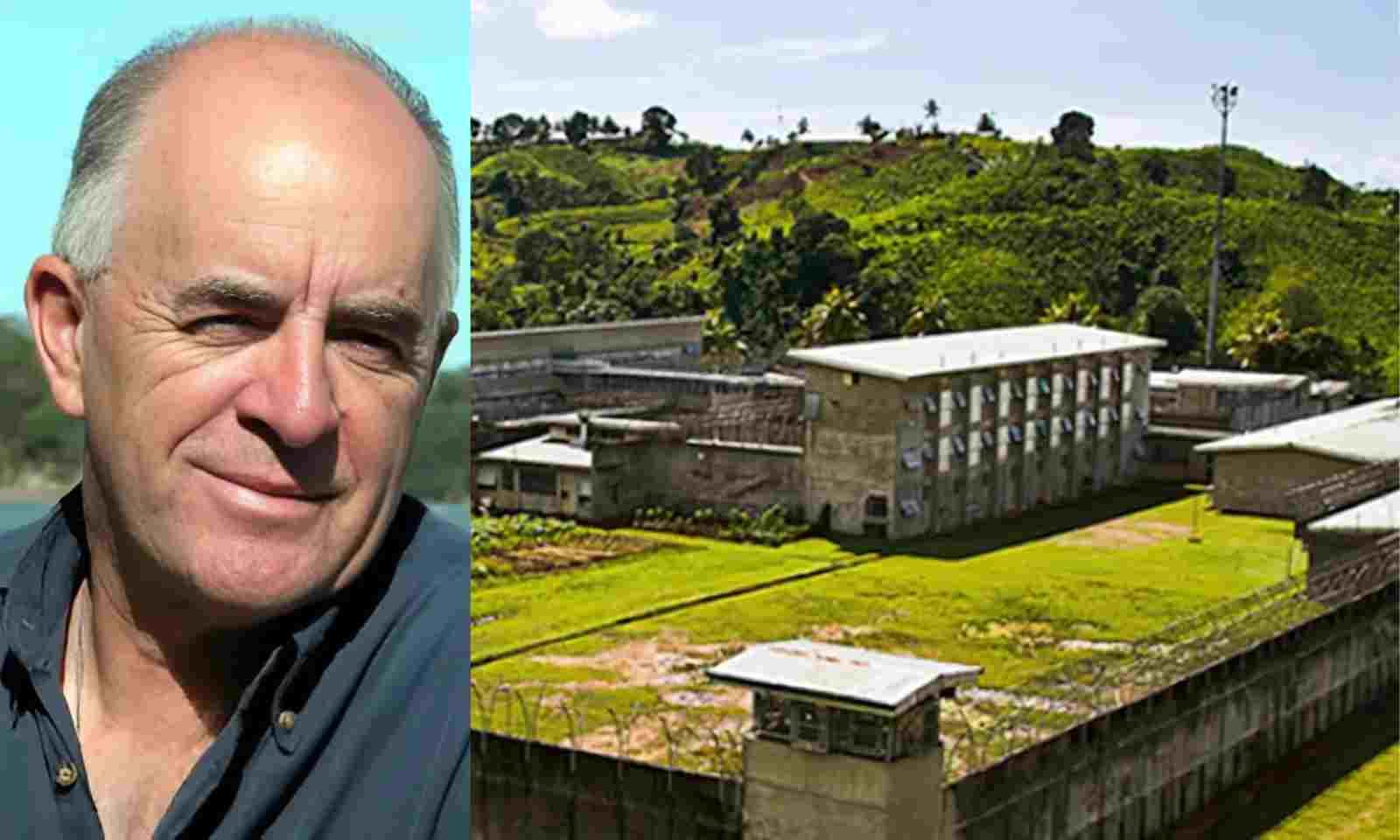
Veteran Kiwi journalist Michael Field, left, and the prison complex where George Speight and Frank Bainimarama were held. Photo/crosbiew.blogspot.com/Fiji Corrections Service
Here are excerpts of Field's article.
The reality, this 25th anniversary year, is that before demographics catch up with him, Rabuka has to scrap the immunity clauses now and submit himself to the courts. Anything else is just geriatric theatrics.
Around half of Fiji’s 924,000 people today were not alive when ‘Stranger No 1’, carrying Fiji Army weapons, walked into the Legislative Assembly on Friday 19 May 2000 and announced, ‘this is a civil coup by the people, the taukei people and we ask you to please retire to your Chamber right now, Mr. Speaker. Please co-operate so nobody will get hurt.’
With a median age of 28.1, only those 30 and older have any firsthand memory of George Speight’s terror or the wreckage he inflicted on the state.
That May morning - 25 years ago this month - is eclipsed only by 14 May 1987, when Colonel Sitiveni Rabuka pulled off Fiji’s first coup, 38 years ago this month.
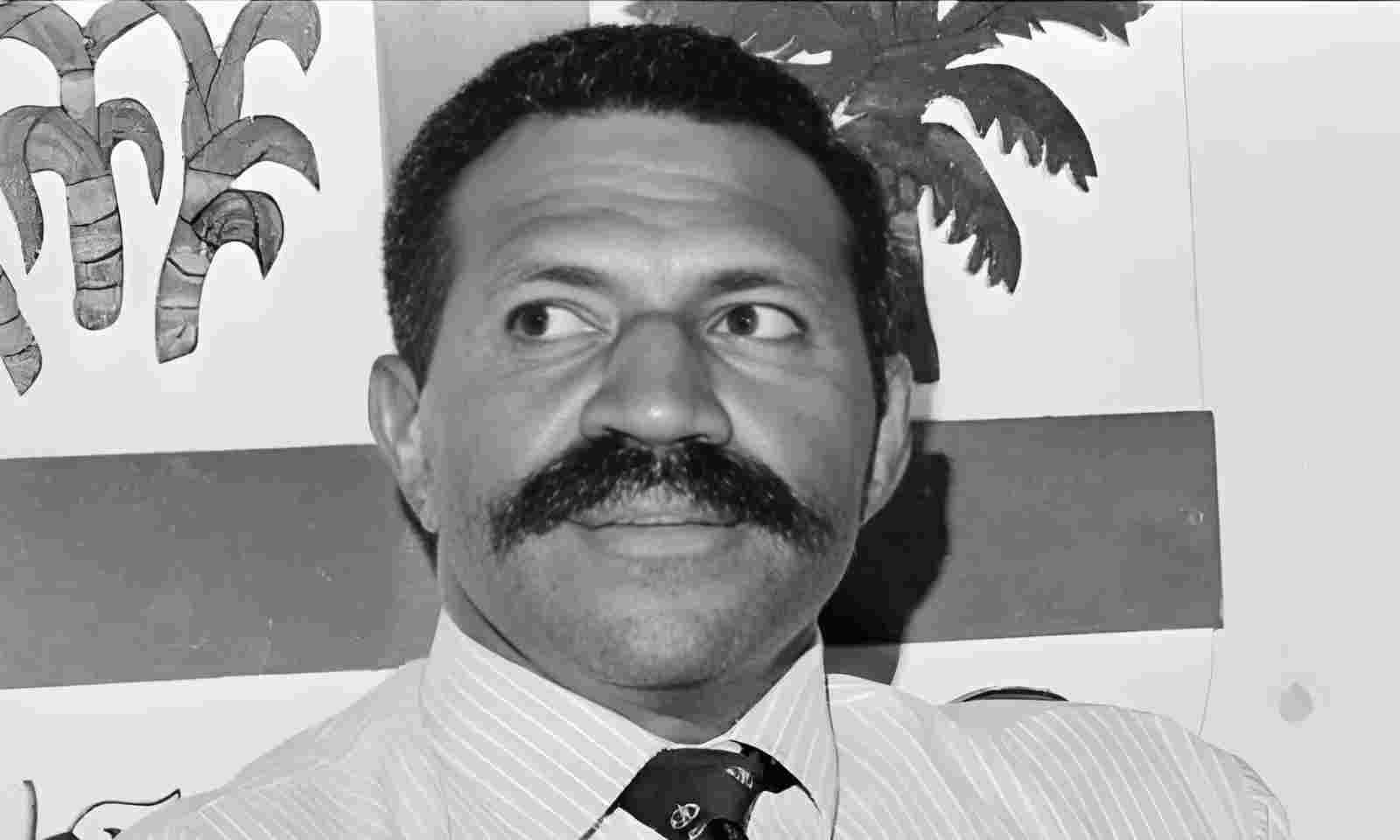
The 1987 Fiji military coup leader, Sitiveni Rabuka, photographed circa 29 May 1987. Photo/Ian Mackley/The Post
Here’s the kicker: Speight, now 68, served 24 years behind bars. Rabuka - now 76 - faced a few court dates, but walked free, turning mea culpas into a Hallmark-card cottage industry while holding the ultimate prize: power as the prime minister.
Odd how justice plays favourites. Even coup plotter (and yet-to-be-convicted traitor) Voreqe [Frank] Bainimarama has been tried and jailed - albeit for strange little offences.
Rabuka claims the moral high ground yet avoids any real accounting thanks to self-written constitutional immunities.
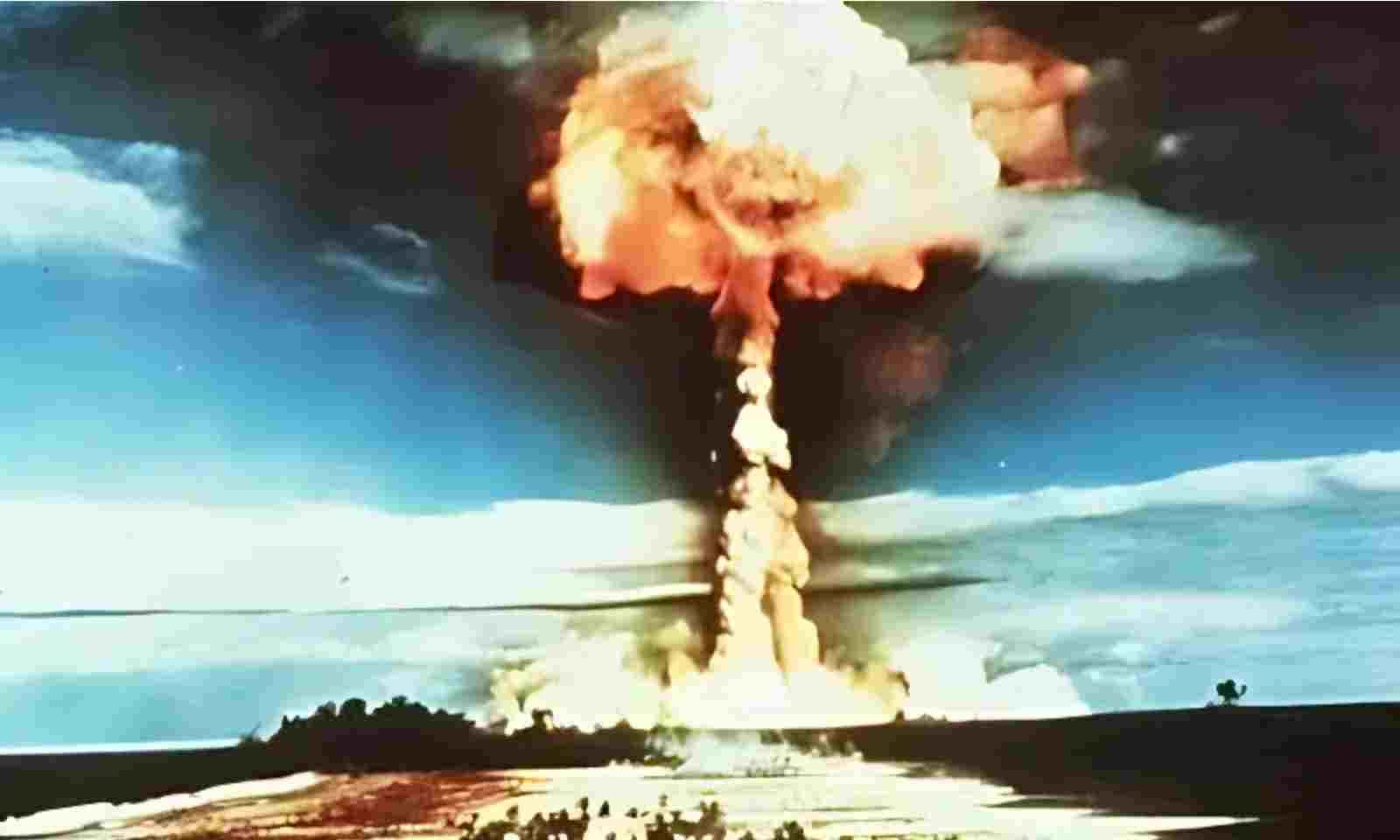
Sitiveni Rabuka was promoted to Grand Officier for supporting French nuclear testing at Mururoa Atoll in French Polynesia. Photo
Oddly, with his French Légion d'Honneur prominent daily, he plainly believes in his hero status (it's mostly forgotten today that Rabuka was promoted to Grand Officier for supporting French nuclear testing at Mururoa Atoll in French Polynesia).
To read more about Field's views, you can check out the full article online: https://michaelf27.substack.com